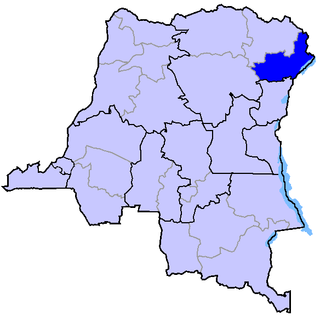
The United Nations Organization Stabilization Mission in the Democratic Republic of the Congo or MONUSCO, an acronym based on its French name, is a United Nations peacekeeping force in the Democratic Republic of the Congo (DRC) which was established by the United Nations Security Council in resolutions 1279 (1999) and 1291 (2000) of the United Nations Security Council to monitor the peace process of the Second Congo War, though much of its focus subsequently turned to the Ituri conflict, the Kivu conflict and the Dongo conflict. The mission was known as the United Nations Mission in the Democratic Republic of Congo or MONUC, an acronym of its French name Mission de l'Organisation des Nations Unies en République démocratique du Congo, until 2010.

The Ituri conflict was a major conflict between the agriculturalist Lendu and pastoralist Hema ethnic groups in the Ituri region of the north-eastern Democratic Republic of Congo (DRC). While the two groups had fought since as early as 1972, the name 'Ituri conflict' refers to the period of intense violence between 1999 and 2003. Armed conflict continues to the present day.
The Union of Congolese Patriots is a political and militia group in Ituri, northeastern Democratic Republic of the Congo, formed towards the end of the Second Congo War. It was founded by Thomas Lubanga in 2001 and was one of six such groups that sprung up in the mineral-rich Ituri region on the border with Uganda in the Ituri conflict. The UPC supported and was primarily composed of the Hema ethnic group.
Congolese history in the 2000s has primarily revolved around the Second Congo War (1998–2003) and the empowerment of a transitional government.
The Front for Patriotic Resistance in Ituri is a Bunia-based armed militia and political party primarily active in the south of the Ituri Province of northeastern Democratic Republic of the Congo.

The Kivu conflict began in 2004 in the eastern Congo as an armed conflict between the military of the Democratic Republic of the Congo (FARDC) and the Hutu Power group Democratic Forces for the Liberation of Rwanda (FDLR) in the Democratic Republic of the Congo. It has broadly consisted of three phases, the third of which is an ongoing conflict. Prior to March 2009, the main combatant group against the FARDC was the National Congress for the Defence of the People (CNDP). Following the cessation of hostilities between these two forces, rebel Tutsi forces, formerly under the command of Laurent Nkunda, became the dominant opposition to the government forces.
Mathieu Ngudjolo Chui is a colonel in the Congolese army and a former senior commander of the National Integrationist Front (FNI) and the Patriotic Resistance Force in Ituri (FRPI).
The assault on Bogoro, which occurred on February 24, 2003, was an attack on the village of Bogoro in the Democratic Republic of the Congo (DRC) by the Nationalist and Integrationist Front (FNI) and the Front for Patriotic Resistance of Ituri (FRPI). The attackers allegedly went on an "indiscriminate killing spree", killing at least 200 civilians, imprisoning survivors in a room filled with corpses, and sexually enslaving women and girls. Two rebel leaders, Germain Katanga and Mathieu Ngudjolo Chui, have been charged by the International Criminal Court with war crimes and crimes against humanity over their alleged role in planning the attack.

The President of the United Nations Security Council is the presiding officer of that body. The President is the head of the delegation from the United Nations Security Council member state that holds the rotating presidency.
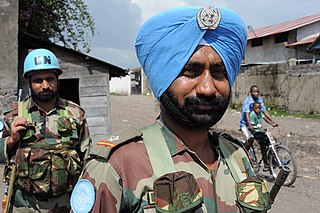
United Nations Security Council Resolution 1925, adopted unanimously on May 28, 2010, after reaffirming previous resolutions on the situation in the Democratic Republic of the Congo, the Council extended the mandate of the United Nations Mission in the Democratic Republic of Congo (MONUC) until June 30, 2010, authorised a withdrawal of 2,000 troops and decided that from July 1, 2010, MONUC would be known as the United Nations Organization Stabilization Mission in the Democratic Republic of the Congo (MONUSCO) with a mandate until June 30, 2011.
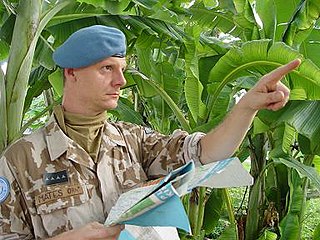
United Nations Security Council resolution 1355, adopted unanimously on 15 June 2001, after recalling resolutions 1234 (1999), 1258 (1999), 1265 (1999), 1273 (1999), 1279 (1999), 1291 (2000), 1296 (2000), 1304 (2000), 1323 (2000), 1332 (2000) and 1341 (2001) on situation in the Democratic Republic of the Congo, the Council extended the mandate of the United Nations Mission in the Democratic Republic of Congo (MONUC) until 15 June 2002 subject to review every four months.

United Nations Security Council resolution 1457, adopted unanimously on 24 January 2003, after recalling resolutions 1291 (2000), 1304 (2000), 1323 (2000), 1332 (2000), 1341 (2001), 1355 (2001), 1376 (2001), 1417 (2002) and 1445 (2002) on the situation in the Democratic Republic of the Congo, the Council condemned the plundering of natural resources in the country and requested a six-month mandate for a panel investigating the issue.
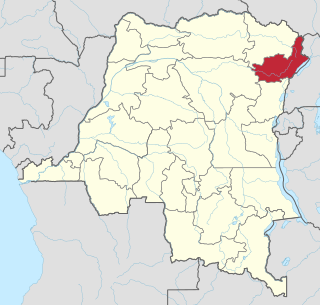
United Nations Security Council resolution 1468, adopted unanimously on 20 March 2003, after recalling previous resolutions on the situation in the Democratic Republic of the Congo, the Council welcomed an agreement on the establishment of a transitional government and requested an increased presence of the United Nations Mission in the Democratic Republic of Congo (MONUC) in the Ituri region in the east of the country amid escalating violence.
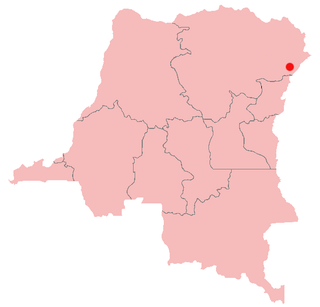
United Nations Security Council Resolution 1484, adopted unanimously on 30 May 2003, after recalling previous resolutions on the situation in the Democratic Republic of the Congo, the Council authorised Operation Artemis in Bunia, the capital of Ituri Province, amid the deteriorating security situation in the area.

United Nations Security Council resolution 1533, adopted unanimously on 12 March 2004, after recalling all previous resolutions on the situation in the Democratic Republic of the Congo, the Council established a Committee to monitor an arms embargo imposed on all foreign and Congolese forces in the east of the country.

United Nations Security Council resolution 1565, adopted unanimously on 1 October 2004, after recalling all previous resolutions on the situation in the Democratic Republic of the Congo, the Council extended the mandate of the United Nations Mission in the Democratic Republic of Congo (MONUC) until 31 March 2005 and authorised an additional deployment of 5,900 troops and police.

United Nations Security Council resolution 1592, adopted unanimously on 30 March 2005, after recalling all previous resolutions on the situation in the Democratic Republic of the Congo, including Resolution 1565 (2004), the Council extended the mandate of the United Nations Mission in the Democratic Republic of Congo (MONUC) until 1 October 2005.

United Nations Security Council Resolution 1649, adopted unanimously on 21 December 2005, after recalling all previous resolutions on the situation in the Democratic Republic of the Congo, including resolutions 1533 (2004), 1565 (2004), 1592 (2005), 1596 (2005) and 1616 (2005), 1621 (2005) and 1628 (2005), the Council extended and expanded sanctions against the country until 31 July 2006, and demanded that foreign fighters disarm or face sanctions.
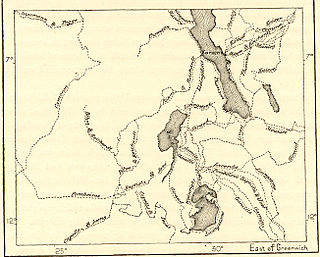
United Nations Security Council Resolution 1653, adopted unanimously on January 27, 2006, after recalling previous resolutions concerning the situations in the African Great Lakes region, Democratic Republic of the Congo and Burundi, particularly resolutions 1625 (2005), 1631 (2005), 1649 (2005) and 1650 (2005), the Council addressed the stability of the Great Lakes region in Africa.
